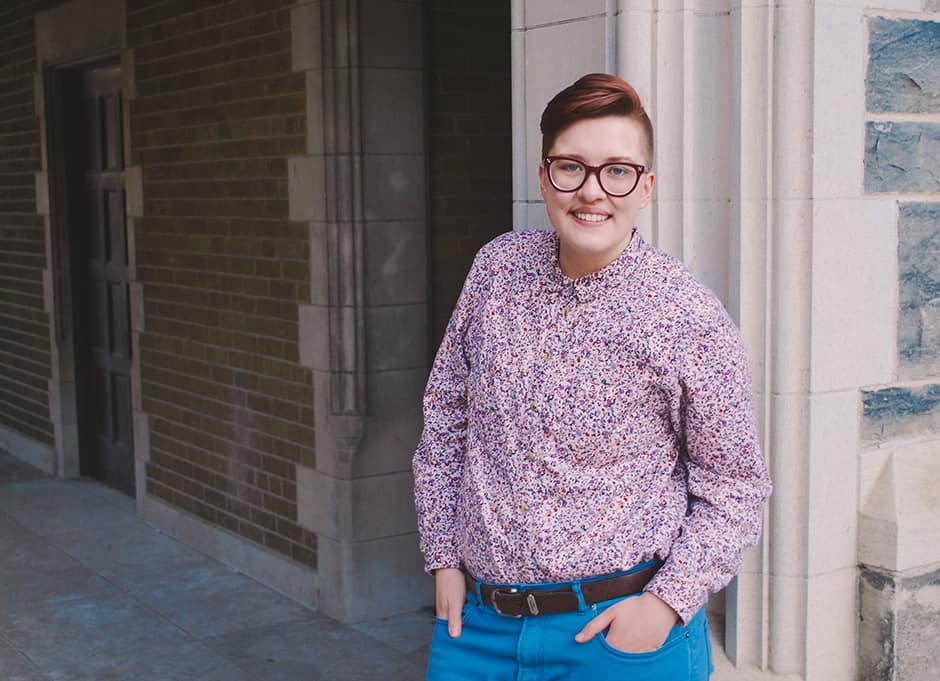Hours into the Trinity College Meeting (TCM) on March 9, the motion to change “Men and Women of College” to “Members of College” in the TCM constitution was finally at the table. With over 185 Trinity students present, all ready to have their voices heard, I was beyond stressed. My head pounded as I walked on to the stage, my stomach churned as the Chair asked me to motivate. Yet, in the end, the motion’s discussion lasted five minutes and passed its first round with well over 90 per cent of the vote. To add to the joy, our Heads of College showed true leadership this week when they desegregated one of our year-end events called “deports.” So, why are these seemingly obvious reforms such a cause for celebration? Well, this exhausting fight against the Trinity gender binary has been ongoing since October.
At the second TCM of the year, this amendment, as well as another to desegregate deports, were both struck down. This failure was disheartening, especially given the number of hours my friends and I put into the cause.
I felt that my college invalidated my daily experiences of cissexism, if not my entire existence as a non-binary person. This motion was deeply personal for me and other gender non-conforming folks at Trinity. Its potential for change instead became another place filled with willful ignorance. Following this meeting, microaggressions against my gender expression only escalated, and my mental health was in shambles. For many, I was either too aggressive in my advocacy or I was not patient enough to learn about ‘the other side and their perspective.’ Some students questioned me about my use of ‘they, them, their’ pronouns, while others criticized me for politicizing Rainbow Trinity. By January, I moved out of residence early for my own self-care and separated myself from such toxicity.
Given this context, last week’s TCM was tremendous, and the sincerity of the applause afterwards showed it clearly meant a lot to the entire community. Although it would be nice to say, ‘Hoorah equity! Trinity is so fetch!,’ we still have a long way to go. Given that we ended our meeting early, we have yet to discuss the more controversial issues, such as the desegregation of gendered events, proactive de-funding of discriminatory events, and mandated equity training for student leaders and frosh attendees. Will these motions pass? I honestly have no idea.
What I do have an idea about is Trin culture. Although the college is known to the outside world for its traditions, Oxford style, and not-so-subtle posh extravagance, many of the students like at least the concept of equity. I do not know about anyone else, but I have personally never met a self-proclaimed bigot at Trinity. Of course nobody wants to exclude anyone, but here is the paradox: we call ourselves ‘progressive’, ‘equitable’, and ‘inclusive’, yet we ignore or excuse discriminatory situations at Trinity College. Why?
Well, allyship is a choice; to have privilege gives you the option to ignore structural discrimination. Yet, this is certainly not just a Trinity problem — it is a U of T problem and it is a societal problem. For example, being able-bodied, I often ignore the inaccessibility of many U of T buildings. Additionally, being a white Anglophone, I often conflate diverse Indigenous and French expressions within the British sex/gender/sexuality paradigm. Allyship means to step back and allow others to have a voice, yet too often we use ‘allyship’ to further fortify structural privilege and silence those who are marginalized.
More importantly, allyship is to acknowledge people’s lived experiences of intersectional violence. We need to educate ourselves without demanding that those who are marginalized convince us their inclusion matters. We need to recognize that no individual represents anyone else but themselves. Yet, too often, people of privilege see personal experiences or feelings as a distraction from rational discourse, as though people shouldn’t be angry about their marginalization. We have the right to be angry, and Enlightenment ideals are not warranted here.
Although this is where cries of “freedom of speech!” often come in, let me say this: freedom of speech is not honoured when we say things that silence others. A true expression of free speech is the empowerment of others, not some perverse justification for saying misogynistic, racist, cissexist, or some otherwise terrible things.
So for Trinity, as a close-knit community, we forget that equity is a goal to work towards, not something that we can take for granted. Whether we like or not, if a tradition does not evolve to suit our time it will die. In many ways, the change to “Members of College” is merely a call to change the intense structural injustices at our College, from the non-existence of gender-neutral washrooms to the lack of mandatory equity workshops for Frosh attendees. I love this college enough to say it needs to change some of its ways, and I know many Members of College feel the same.
Haley O’Shaughnessy is the President of Rainbow Trinity and a research assistant at the Canadian Lesbian and Gay Archives.


